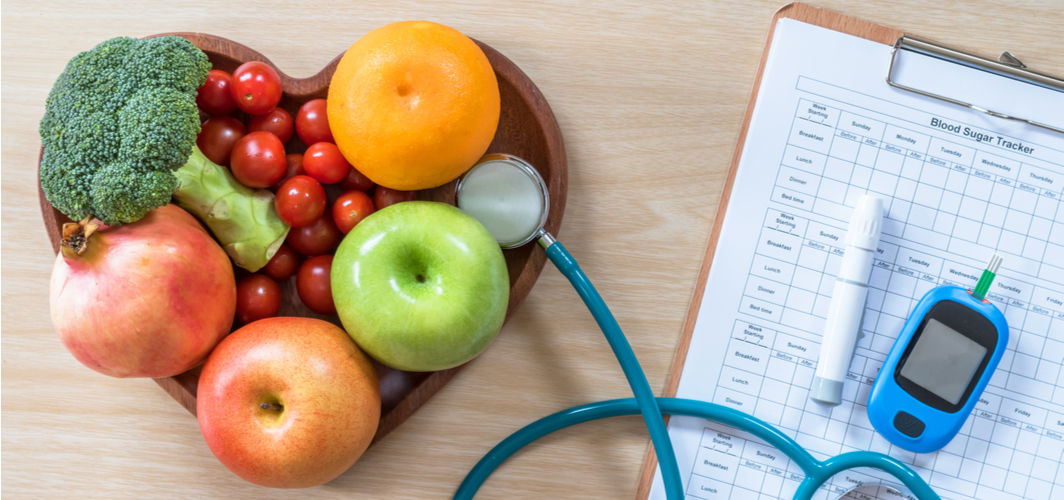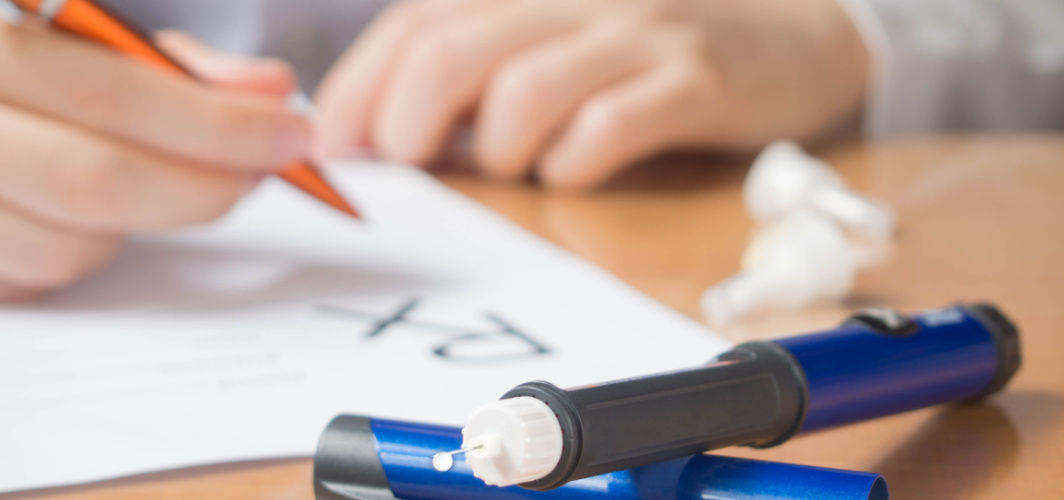Diabetes Management
COVID-19 and Diabetes management: Clinical guidelines
5 min read
By Apollo 24/7, Published on - 08 June 2021, Updated on - 01 June 2023
Share this article
1
16 likes

Increasing cases of mucormycosis, popularly known as black fungus, are being reported in several states of India. Uncontrolled diabetes mellitus is one of the major factors that increase the risk of mucormycosis in COVID-19 patients. Hence, the diagnosis and management of diabetes has emerged as a priority for healthcare providers at a time when hospitals are overwhelmed with countless cases of severe COVID-19 infections.
Recently, the Ministry of Health and Family Welfare (MoHFW) has revised the guidelines on the diagnosis and management of diabetes among COVID-19 patients at patient management facilities. The new guidelines underline the significance of strictly monitoring diabetic COVID-19 patients as they are at high risk of developing mucormycosis.
Screening tests for people admitted to the COVID-care facility
Doctors have been advised to screen every COVID-19 patient for hyperglycemia (high blood sugar) as soon as they get admitted to the hospital. The screening guidelines include:
- Check Capillary Blood Glucose (CBG) of the patient at the time of hospital admission. It is done by pricking a finger with a syringe followed by testing the blood using a glucometer.
- Repeat the test 2 hours before a meal and 2 hours after a meal. If possible, send blood samples to examine the fasting blood glucose and HBA1c levels, to determine the average blood glucose of the last 3 months.
- Monitor the blood sugar levels 4 times (before breakfast, lunch, dinner and after dinner) for at least 2 days to rule out underlying hyperglycemia. Hyperglycemia is indicated if:
-
- Random CBG is more than or equal to 180 mg/dl.
- Pre-meal blood sugar levels are more than or equal to 140 mg/dl and after eating food, the levels are more than or equal to 180 mg/dl.
- Fasting blood glucose is more than or equal to 110 mg/dl.
- HBA1c more than or equal to 6.0%. If HBA1c levels are more than 6.0%, it indicates diabetes.
- The patient must be given anti-diabetic medications if their:
-
- Random CBG is more than or equal to 250 mg/dl.
- Pre-meal blood sugar is more than or equal to 150 mg/dl and after eating it spikes to more than or equal to 200 mg/dl
- Fasting blood glucose is more than or equal to 126 mg/dl
- HBA1c more than or equal to 6.5%
Monitoring blood glucose of non-diabetic COVID-19 patients
It has been seen that COVID-19 patients who get admitted to the hospital with normal glucose levels often develop hyperglycemia as soon as their infection gets severe or after they start receiving steroids. Hence, checking blood sugar levels of non-diabetic patients 4 times a day, before breakfast, before lunch, before dinner and after dinner, for at least 2 days, is advised to prevent future complications.
Blood glucose levels of high-risk groups, including obese patients, those aged 50 years or above, and those suffering from cardiovascular diseases, must be checked once every 3 to 4 days.
Which oral glucose-lowering agents are given to COVID-19 patients?
Oral glucose-lowering agents can be prescribed to patients who develop mild COVID-19 symptoms and mild hyperglycemia, which is characterised by a fasting blood glucose of less than 180 mg/dl and post-eating blood glucose of 250 mg/dl. The most potent oral glucose-lowering agent given to COVID-19 patients is a DPP-4 inhibitor, available as sitagliptin, teneligliptin, linagliptin, and vildagliptin.
However, some glucose-lowering drugs may cause a problem in COVID-19 patients and these include:
- Metformin: It increases the risk of lactic acidosis (build-up of lactic acid in the body) in patients suffering from hypoxia.
- Sulfonylurea: It increases the risk of hyperglycemia if the patient has a poor diet.
- SGL2-inhibitors: They increase the risk of dehydration and ketoacidosis.
- Pioglitazone: It increases the risk for fluid retention and oedema (swelling), therefore, it should be contraindicated in patients suffering from cardiac or liver dysfunction.
Role of insulin therapy in managing the blood glucose levels
Insulin is prescribed in the cases where the patient:
- Develops moderate to severe COVID-19 symptoms
- Develops moderate to severe hyperglycemia (fasting blood sugar is more than 180 mg/dl and after eating is more than 250 mg/dl).
COVID-19 patients are delivered insulin in two different ways:
- Basal bolus insulin: In this regime, the patients are given 0.4 units of insulin/kg/day in all patients but 0.2 units/kg/day to old patients and those suffering from renal failure. This treatment aims to get the fasting and post-eating blood glucose levels to less than 140 and 180 mg/dl, respectively.
- Intravenous insulin infusion: This method is preferred in the case of sepsis, diabetic ketoacidosis or uncontrolled diabetes despite using basal-bolus insulin. In this case, the patient is given 0.05 to 0.1 unit of insulin per Kg body weight per day through veins. As soon as the blood glucose levels reach between 140 to 220 mg/dl, the patients are switched back to basal-bolus insulin therapy.
What should be done if blood glucose worsens due to steroid treatment?
Steroids are known to increase blood sugar levels by increasing insulin resistance and promoting the release of stored glucose from the liver into the blood. It has been noted that methylprednisolone and dexamethasone, two of the most commonly used steroids in COVID-19 patients, can result in hyperglycemia, which is likely to persist throughout the day. Therefore, doctors have prepared guidelines to administer insulin to patients who develop high blood sugar due to steroid treatment. These guidelines include:
- Non-diabetic patients would be given 0.2 units of insulin/kg/day
- Patients who are already taking 1 or 2 oral glucose-lowering agents would be given 0.4 units of insulin/kg/day
- Patients who are already taking more than 2 oral glucose-lowering agents would receive 0.6 units of insulin/kg/day
- Patients who are already taking insulin of more than 0.6 units would receive 1.2 times their original dose of insulin/kg/day.
Conclusion
These new guidelines have been formulated to highlight the need to monitor the patients suffering from diabetes or abnormally high blood sugar due to the increased threat of black fungus in hospitalised COVID-19 patients. The Health Ministry of India has advised that every patient admitted to the hospital must be screened for high blood sugar at least twice (fasting and after eating) a day. They further added that diabetics must be put on a strict ‘diabetic diet’ to ensure that their blood sugar levels are under control.
Read the entire set of guidelines here.
For any diabetes-related query, you can speak with a diabetologist.
You can also manage your diabetes like a pro with Apollo 24|7's 12-week empower programme.
Diabetes Management
Leave Comment
Recommended for you

Diabetes Management
How Can Sleep Apnea Affect Diabetes?
Sleep apnea, characterised by breathing interruptions during sleep, increases the risk of type 2 diabetes due to insulin resistance and worsens complications. Early detection, accurate diagnosis, and treatments like CPAP therapy and lifestyle changes are essential for managing sleep apnea and its impact on diabetes.

Diabetes Management
Explained: The Diabetes and Heart Disease Link
Can diabetes raise the risks of heart disease? Yes, diabetes can increase the risk of heart disease by affecting the blood vessels and promoting the buildup of plaque. Elevated blood sugar levels can damage the lining of blood vessels, leading to atherosclerosis. Additionally, diabetes is associated with other risk factors like high blood pressure and cholesterol levels, further contributing to heart disease risk.

Diabetes Management
Five Essential Tips for Diabetes Self-Management
Managing diabetes effectively involves regular blood sugar monitoring, a balanced diet, exercise, medication adherence, stress management, and self-care. These five essential tips empower individuals to take control of their diabetes, whether it's Type 1, Type 2, or Gestational Diabetes. By monitoring blood sugar levels, understanding dietary choices, staying active, adhering to prescribed medications, and managing stress, individuals can lead healthier, happier lives with reduced complications. Diabetes management requires dedication, but the improved health outcomes make it a worthwhile effort.
Subscribe
Sign up for our free Health Library Daily Newsletter
Get doctor-approved health tips, news, and more.
Visual Stories

8 Fruits That are Incredibly Healthy for Diabetes
Tap to continue exploring
Recommended for you

Diabetes Management
How Can Sleep Apnea Affect Diabetes?
Sleep apnea, characterised by breathing interruptions during sleep, increases the risk of type 2 diabetes due to insulin resistance and worsens complications. Early detection, accurate diagnosis, and treatments like CPAP therapy and lifestyle changes are essential for managing sleep apnea and its impact on diabetes.

Diabetes Management
Explained: The Diabetes and Heart Disease Link
Can diabetes raise the risks of heart disease? Yes, diabetes can increase the risk of heart disease by affecting the blood vessels and promoting the buildup of plaque. Elevated blood sugar levels can damage the lining of blood vessels, leading to atherosclerosis. Additionally, diabetes is associated with other risk factors like high blood pressure and cholesterol levels, further contributing to heart disease risk.

Diabetes Management
Five Essential Tips for Diabetes Self-Management
Managing diabetes effectively involves regular blood sugar monitoring, a balanced diet, exercise, medication adherence, stress management, and self-care. These five essential tips empower individuals to take control of their diabetes, whether it's Type 1, Type 2, or Gestational Diabetes. By monitoring blood sugar levels, understanding dietary choices, staying active, adhering to prescribed medications, and managing stress, individuals can lead healthier, happier lives with reduced complications. Diabetes management requires dedication, but the improved health outcomes make it a worthwhile effort.